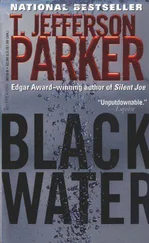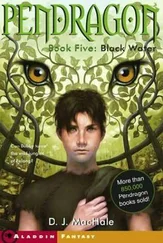Nearby, the baby monkey sat, alone now, looking at them.
*
There had nearly been a child. That was the way he thought of it. It. How unconscionable, that small word: it. But what was the alternative? He couldn’t do what Francisca did: Francisca, his wife, the fragile beauty from Friesland — the woman his mother had hated so much it was inevitable he would marry her eventually. She had started choosing names for the baby in the early stages of her pregnancy, convinced it was a boy. She had bought piles of soft cloth diapers and little knitted vests. She had the cot they would bring him home in all ready with a yellow bow tied to the handle. He would watch her sometimes, when she was sitting on the window seat in the sitting room, unaware of his gaze, reclining on a pile of fat firm cushions and staring out at the canal while running her hand over her taut belly, a small smile of knowingness on her face. He thought how perfected she seemed then, in her happiness, in the knowledge that something was coming that she would love beyond all else but for the moment was safe inside her, enclosed in the wet wall of her womb; the repository of all her hopes and dreams; entirely imagined, entirely protected.
When he saw that expression on his wife’s face, what he felt was fear. Fear gripped his stomach like a fist. The helplessness of babies disturbed and disgusted him, that was why it had taken him until his middle years to consider having one. He told himself he would feel differently when it was his own, but looking at other people’s he just thought, at what point do they become human?
Then he said to himself, you’re fifty years old. She’s forty and it’s probably her last chance, which is your fault because it took you eight years to agree to marry her. This thing has come to you both at a time in life when, for most people, there are no more surprises. Be grateful. Put the past aside, let go of the convictions you have nursed ever since you came back from Indonesia as a young man, broken. Okay, so you’re not sure about her, not sure at all about the baby — but she seems sure enough for both of you. Maybe her certainty will be enough.
Francisca went into labour in the middle of the night, eight weeks before her due date. It was a girl. She lived for two days. The doctor explained later: it was an aspiration problem, something to do with the baby swallowing or inhaling something in the amniotic fluid that blocked its — her — airways. It caused the pneumonia that killed her. She lived long enough for them to hold her, name her — Anika, after his mother, Francisca’s suggestion. They had watched her breathe in the tiniest, most shallow of ways, her small chest labouring — but Harper still thought of her as having drowned in the womb. It made more sense, somehow. How could a baby float in fluid for nine months, anyway? When he sat next to the cot in the incubation unit, Francisca clutching his hand and weeping, he remembered his mother’s story of how he had been born during a monsoon in an internment camp in the Dutch East Indies and the rain running down the sides of the hut and the dirt road turning into a brown river and wondered if this story had somehow been there inside him when he thought of his baby daughter as having drowned, as if a story like that could be passed on to his baby, like a genetic disease.
Francisca had sobbed in his arms at night for weeks afterwards, and said things like, ‘I know you are suffering too but you aren’t able to express it, it’s okay, I understand that.’ He did not tell her that when their tiny baby had died he had thought — in the moments before his own grief and disappointment had taken hold — at least you have been spared life .
The day started well enough. He had arranged to pick Rita up at two pm and although she had told him to park outside an electrical shop on Monkey Forest Road and wait for her there, he got out of the car and wandered up and down a few paces each way, curious to know which compound was hers. He was standing right outside it when she emerged alongside a young Balinese woman who was holding a pile of textbooks with both arms wrapped beneath.
‘You are here,’ she said simply. ‘This is Ni Wayan.’
He nodded and the young woman nodded back, then she looked at Rita and said, ‘ Ibu Rita,’ with a bow and smile, before turning towards town.
‘I thought today was a day off,’ he said, as he led Rita to the car. It had pleased him to hear the girl call her ibu with such affectionate emphasis: she was a well-liked teacher, held in affection and regard. He had thought as much.
‘Wayan came to me yesterday and asked for an extra lesson. It happens often. That’s why I said after lunch. My days off usually start after lunch.’
‘Are you good to all your students?’ He opened the passenger door for her.
‘They are all good to me.’
As he climbed in his side, she said quietly and seriously, ‘God bless the Balinese.’
They bumped slowly down Monkey Forest Road and turned right onto the main street. Rita leant forward and opened the car’s glove compartment.
‘What do you want?’ he asked.
She pointed at the tape deck between them. He glanced at it and said, ‘I’ll be really surprised if that works.’
Rita pulled out a handful of tapes, loose with no cases. She lifted a couple in turn then shrieked, ‘Superman Is Dead! Suckerhead? Where did you get this car?’
Kadek had got the car for him. He had wanted a local vehicle, nothing identifiable as a foreigner’s hire car. ‘What’s Suckerhead?’
Rita was still looking through the cassettes. ‘Local death metal. Big underground scene here. Even Balinese youth need to rebel sometimes. They rioted in Jakarta when Metallica came, you know.’
It occurred to him to mention the riots in Jakarta that had recently led to the downfall of the Sustainer of the Universe, which he thought a somewhat more significant event, but it would be hard to discuss the political situation in the capital without it becoming clear that his knowledge of it was a little more detailed than your average economist; although she would know if some of the Chinese families fleeing the capital had come here, she would know what the talk was amongst her students — she could be a useful source of information. Stop it , he said to himself then.
Once in Sanur, they went straight to the hotel and parked in the car park at the entrance to the gardens and walked down a pretty lane to reception and Rita laughed at his irritation that there was no valet parking. He resisted her attempts to show him round the grounds; they headed straight to the beachside bar.
Two perfect seats were waiting for them, low and comfy, facing the sea, with a small table between. As they settled into them, Rita leaned forward for the cocktail menu, making a small noise of satisfaction. It was a cloudy day. Down by the water, a row of red, blue and yellow jukung boats were ranged in a row, painted in bright colours, with outrigger legs, raised and bent like spiders, for decorative purposes only, he presumed: the fishing and the coral harvesting on this stretch of beach must have ended many years ago. On a neighbouring terrace, a group of small boys were having their dance practice, the warrior dance — whatever it’s called, nothing to do with battle, these days, he thought.
Rita lifted a hand. ‘Across the bay, there, you know that’s where they built the Bali Beach Hotel in the sixties, first of many, Western triumph or monstrosity depending on your point of view.’
I know , he thought, I watched it being built .
A waiter had materialised at his shoulder and Rita sat upright in her seat, holding the cocktail menu sideways so that he could see.
Читать дальше












